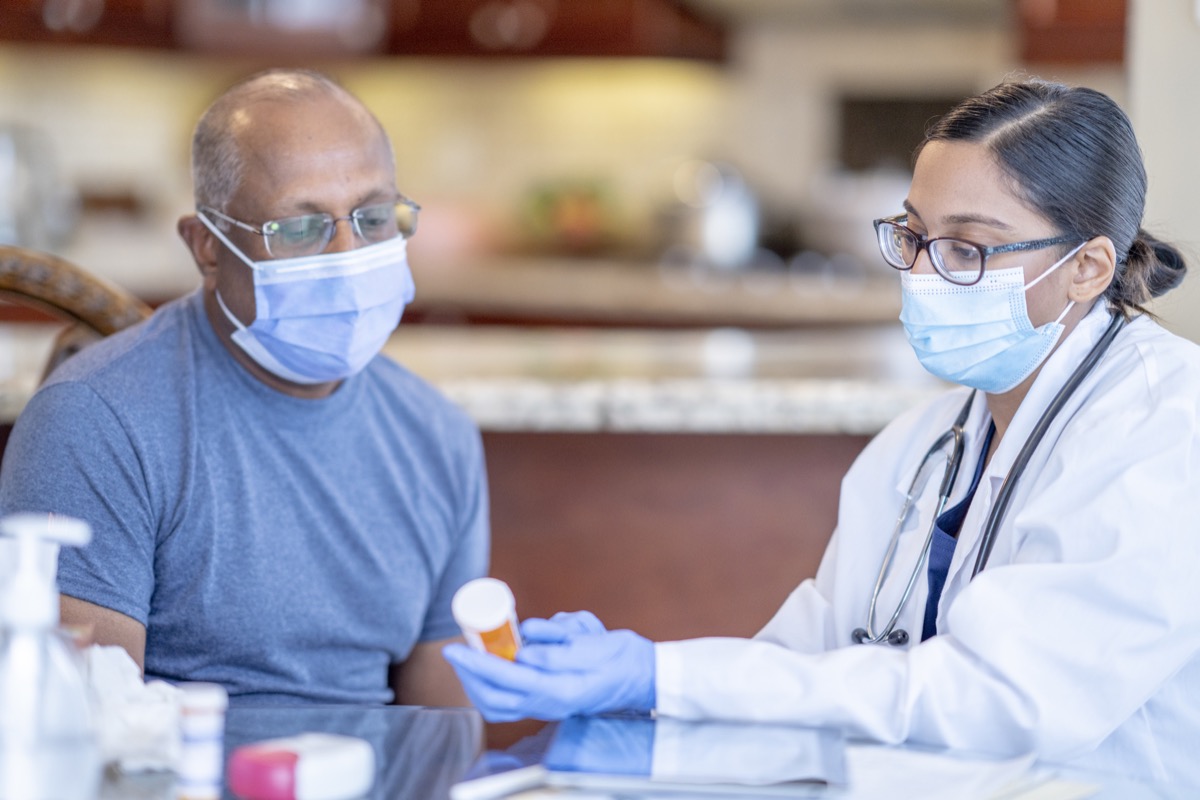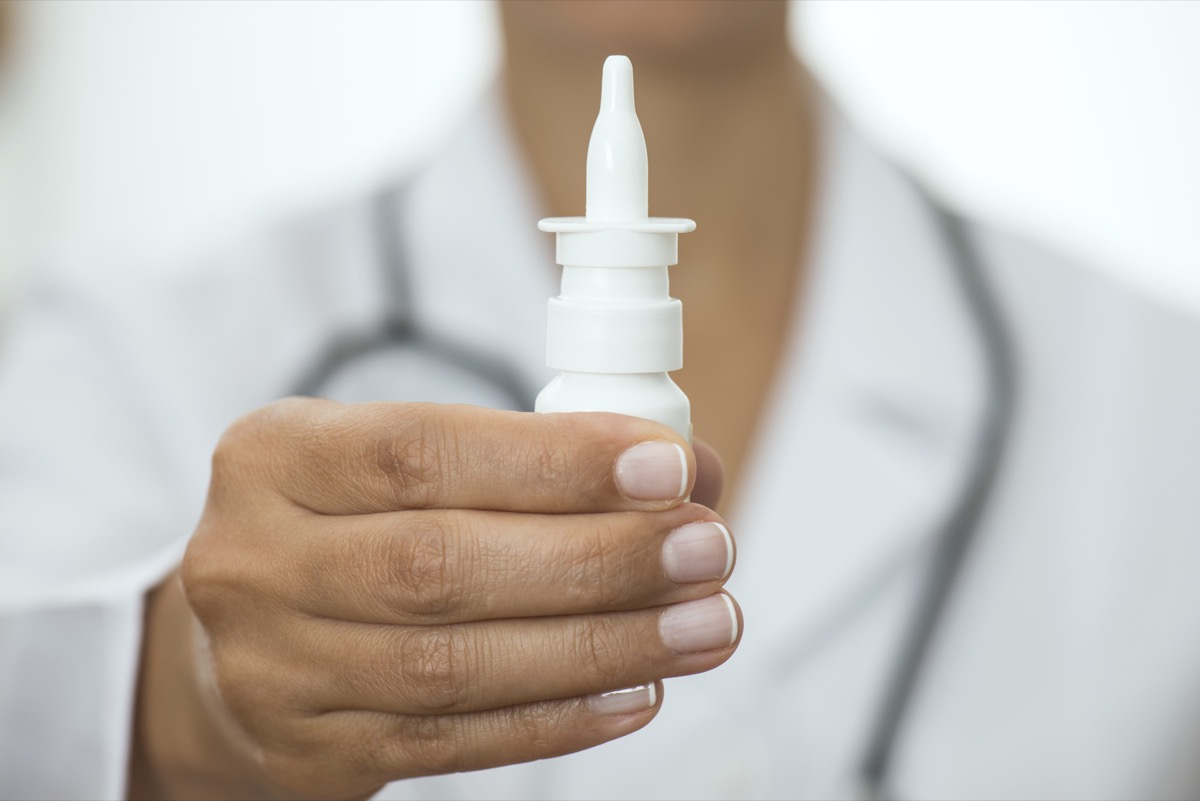The researchers looked at data from the United States Department of Veterans Affairs on 4,297 COVID patients with a mean age of 68 years. They found that those who were provided with blood thinners within 24 hours of being admitted to the hospital with COVID had their relative risk of dying from the disease reduced by 34 percent as compared to individuals who were not provided anticoagulants. Blood clots are a common—and frequently fatal—occurrence in COVID patients; according to a review of research published in the Jan. 2021 volume of the journal Medical Hypotheses, approximately one-third of severe COVID patients present with blood clotting or elevated levels of D-dimer, a protein found in the bloodstream after a clot has come apart. While more research is needed, the study’s authors say their findings “provide strong real world evidence to support guidelines recommending the use of prophylactic anticoagulation as initial treatment for patients with COVID-19 on hospital admission.” Read on to discover which other medications and supplements could be key to surviving the virus, and if you want to protect yourself every day, know that If You See This on Your Mask, the FDA Says Toss It Immediately. In February, researchers at the University of Oxford discovered that tocilizumab, an anti-inflammatory medication frequently prescribed to individuals with rheumatoid arthritis, could reduce COVID mortality rates. In reviewing research from the Randomized Evaluation of COVID-19 Therapy (RECOVERY) trial, researchers found that COVID patients given tocilizumab had a death rate of 29 percent in the first 28 days of treatment versus a death rate of 33 percent among patients who weren’t prescribed the drug. And for more ways to stay safe, beware that If You’ve Done This, You’re Twice as Likely to Develop Severe COVID. Flushing out your nose with a particular kind of nasal spray might make you less susceptible to COVID, according to a new study. According to a preprint of an in vitro study published through bioRxiv, Xclear Sinus Care nasal spray significantly reduced the amount of virus in a test sample. Researchers posited that this was due to the combination of grapefruit seed extract (GSE) and xylitol, a non-caloric sweetener, used in the spray’s formula.ae0fcc31ae342fd3a1346ebb1f342fcb “GSE significantly reduces the viral load while xylitol prevents the virus attachment to the core protein on the cell wall,” explained the study’s authors. And if you’re eager to protect yourself against COVID, check out If You Live in These States, You Can Now Get Vaccinated at Walgreens. Omega-3 fatty acids have emerged as a surprising means of reducing severe COVID symptoms, according to a new study. According to Jan. 2021 research published in the journal Prostaglandins, Leukotrienes and Essential Fatty Acids, individuals with the highest levels of omega-3 fatty acids in their blood had a 75 percent lower risk of COVID death compared to those with lower circulating omega-3 levels. This “strongly suggests that these nutritionally available marine fatty acids may help reduce risk for adverse outcomes in COVID-19 patients,” explained Arash Asher, MD, the study’s lead author. And for the latest COVID news delivered straight to your inbox, sign up for our daily newsletter. Melatonin, a popular sleep aid, may help individuals avoid contracting COVID, recent research claims. A Nov. 2020 study led by researchers at the Cleveland Clinic found that study subjects who used melatonin were 30 percent less likely to develop COVID than those who didn’t use the supplement. However, that doesn’t mean you should go out and grab a bottle for yourself. “It is very important to note these findings do not suggest people should start to take melatonin without consulting their physician,” said the study’s lead author Feixiong Cheng, PhD, assistant staff in Cleveland Clinic’s Genomic Medicine Institute. And for a jarring prediction about what’s to come with the pandemic, check out The U.K.’s Top Scientist Has a Chilling COVID Warning for Americans.



